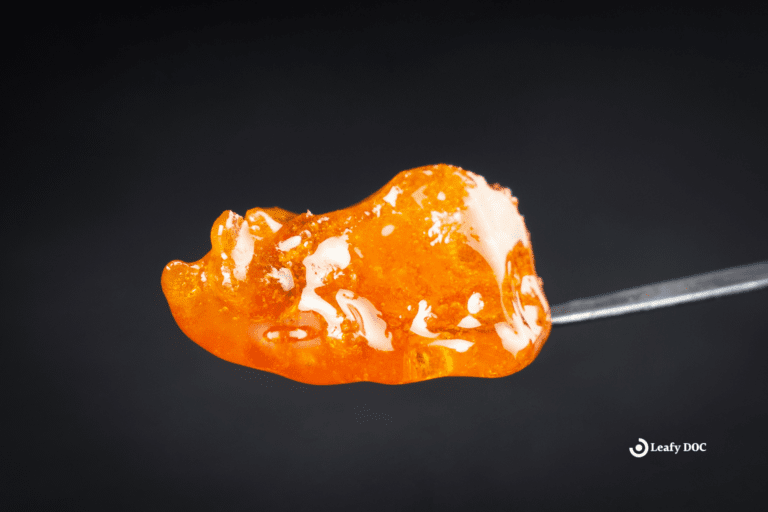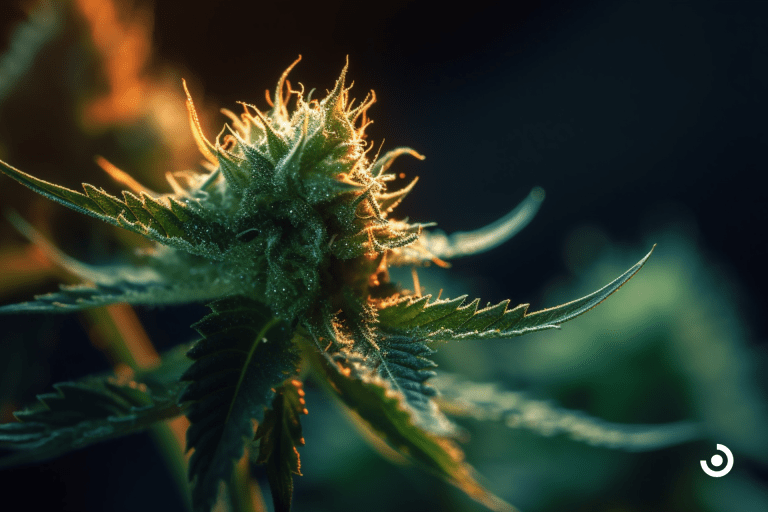Sickle Cell Disease
Can medical cannabis help people with this condition? Find out more below.
What is Sickle Cell Disease?
Sickle Cell Disease (SCD) is a group of inherited blood disorders characterized by the presence of abnormal hemoglobin, a protein in red blood cells responsible for carrying oxygen throughout the body. The most common form of SCD is sickle cell anemia. In SCD, the red blood cells become crescent or sickle-shaped due to the abnormal hemoglobin, causing them to become rigid and sticky. This can result in blocked blood vessels, reduced blood flow, and reduced oxygen delivery to tissues, leading to a variety of complications including pain, infections, and organ damage.
What causes it?
SCD is caused by a genetic mutation in the HBB gene, which codes for the production of the beta-globin chain of hemoglobin. The mutation results in the formation of abnormal hemoglobin, known as hemoglobin S (HbS). Sickle Cell Disease is inherited in an autosomal recessive manner, meaning that a person needs to inherit two copies of the mutated HBB gene (one from each parent) to develop the disease. If an individual inherits only one mutated gene, they are considered a carrier of the sickle cell trait and generally do not exhibit symptoms.
How common is it?
Sickle Cell Disease is more common in certain populations, particularly among people of African, Mediterranean, Middle Eastern, Indian, and South American descent. Globally, it is estimated that approximately 300,000 babies are born with SCD each year. In the United States, sickle cell anemia affects around 1 in every 365 African American births and 1 in every 16,300 Hispanic American births. While SCD is less common in other populations, it can still occur. It is important to note that the prevalence of the sickle cell trait is higher, affecting approximately 1 in 13 African Americans and 1 in 100 Hispanic Americans.
Are there types/stages?
Yes, there are different types of Sickle Cell Disease, which are determined by the specific mutations in the HBB gene. The most common type is sickle cell anemia (HbSS), which occurs when a person inherits two HbS genes. Other types include sickle-hemoglobin C disease (HbSC), sickle beta-plus thalassemia (HbS/β+), and sickle beta-zero thalassemia (HbS/β0). These forms of SCD vary in severity and clinical manifestations, with HbSS and HbS/β0 typically being the most severe.
SCD does not have specific stages; however, the severity and frequency of complications can vary significantly among individuals. Some people with SCD may experience only mild symptoms, while others may have severe, life-threatening complications. The course of the disease can also change over time, with periods of relative stability alternating with episodes of acute pain or other complications. Proper management and care can help improve the quality of life for individuals living with SCD.
Signs & Symptoms
Signs and symptoms of Sickle Cell Disease can vary in severity and frequency. They typically begin in early childhood and can include the following:
- Anemia: Due to the breakdown of sickle cells, individuals with SCD often have a lower red blood cell count, leading to fatigue, weakness, and pallor.
- Pain episodes (crises): Sickle-shaped cells can obstruct blood flow, causing acute or chronic pain in various body parts, such as the chest, abdomen, and joints.
- Swelling of hands and feet: Blocked blood flow can cause swelling and pain in the hands and feet, often one of the first symptoms in infants with SCD.
- Infections: SCD can damage the spleen, impairing its ability to fight infections. Children with SCD are particularly vulnerable to bacterial infections like pneumonia and meningitis.
- Delayed growth: A shortage of healthy red blood cells can slow growth in infants and children and delay puberty in teenagers.
- Vision problems: Small blood vessels in the eyes can become plugged with sickle cells, leading to retinal damage and potentially causing vision problems or blindness.
Diagnosis & Treatment
Diagnosis of Sickle Cell Disease typically involves blood tests. Newborns in the United States and many other countries are routinely screened for SCD as part of their newborn screening tests. If SCD is suspected in older children or adults, doctors can perform a hemoglobin electrophoresis test to identify the presence of abnormal hemoglobin.
There is no universal cure for SCD, but treatment aims to manage symptoms and prevent complications. Treatment options may include:
- Pain management: Over-the-counter pain relievers, prescription medications, and other therapies can help alleviate pain during a crisis or as part of ongoing pain management.
- Infection prevention: Vaccinations, antibiotics, and prompt treatment of infections are crucial for people with SCD, especially in childhood.
- Blood transfusions: Regular blood transfusions can help increase the number of healthy red blood cells and reduce the risk of complications like stroke.
- Hydroxyurea: This prescription medication can help reduce the frequency of pain crises and the need for blood transfusions in some patients.
- Bone marrow transplant: In some cases, a bone marrow transplant from a compatible donor can potentially cure SCD, but the procedure carries significant risks and is unsuitable for everyone.
Can medical cannabis help?
Medical marijuana has been suggested as a potential treatment for managing pain and inflammation in SCD patients. The primary active compounds in marijuana, THC (tetrahydrocannabinol) and CBD (cannabidiol) have been shown to have analgesic, anti-inflammatory, and muscle-relaxant properties, which may help alleviate pain and other symptoms in some patients.
However, research on the use of medical marijuana for SCD is limited, and more comprehensive studies are needed to better understand its potential benefits, risks, and optimal dosages. Some studies have shown promising results, while others have not found significant benefits. Due to the lack of conclusive evidence, medical marijuana remains a controversial treatment option for SCD. Patients considering medical marijuana should discuss the potential benefits and risks with their healthcare provider to determine whether it is an appropriate option.
Last Updated: June 14, 2024
Get Your Medical Card
Connect with a licensed physician online in minutes
Table of Contents
Keep Reading
-
Does Cannabis Cause Dehydration?
Discover the truth about cannabis: does it really cause dehydration? Read this article to find out if marijuana use puts you at risk of dehydration and what you can do to stay hydrated.
-
What Is Dabbing & How Do I Do It?
Unleash your inner dabber and elevate your smoking experience today! Learn what dabbing is and how to do it like a pro. Click here for the ultimate guide!
-
Discover The Best Cannabis Strains For Managing Chronic Pain
Looking for relief from chronic pain? Discover the best strains for managing your discomfort and take control of your pain management journey with these top cannabis options. Click now to find your perfect match and start living pain-free!



